5 Nighttime Foods to Avoid for Deep, Restful Sleep
Tossing and turning all night, staring at the ceiling, feeling drained the next day — sounds familiar?
If you’re constantly struggling with insomnia, you’re not alone. But did you know that certain foods you eat before bed might be silently stealing your sleep?
Poor sleep doesn’t just make you feel tired — it’s linked to weight gain, premature aging, diabetes, high blood pressure, and even increased risks of cancer recurrence.
The good news? With the right diet habits, you can support deeper and more restful sleep — starting tonight.

5 Common Foods That Disrupt Sleep
1. Coffee & Strong Tea
☕ Contain caffeine, which blocks adenosine — a natural chemical that helps you feel sleepy.
📈 Leads to faster heart rate, higher blood pressure, and an overactive mind at bedtime.
Even drinks like hot cocoa, chocolate, bubble tea, energy drinks, and some soft drinks may contain caffeine.
🔍 Tip: Avoid caffeine after 2PM, especially if you’re sensitive to it. It can also increase nighttime urination, disturbing your sleep.
2. Alcohol
🍷 While alcohol may help you fall asleep faster at first, its sleep-disrupting effects kick in later.
Reduces deep sleep time
Causes frequent awakenings
May trigger snoring and breathing issues
🛌 That’s why you may sleep “long” but still wake up feeling unrested.

3. High-Fat & High-Sugar Foods
🍕🍰 Eating too much or consuming fatty, sugary meals at night:
Overworks your digestive organs (stomach, liver, pancreas)
Stimulates the nervous system
Disrupts your body’s natural sleep rhythm
Studies show people on high-fat diets are more likely to suffer from:
Daytime drowsiness
Sleep apnea
Poor sleep quality
😱 One study even found that sugary foods before bed are linked to more nightmares.
4. Spicy Foods
🌶️ Ingredients like chilli, garlic, onion, mustard, and ginger can:
Trigger skin flushing and sweating
Cause dry mouth or burning throat
Lead to heartburn or stomach discomfort at night
❌ Spicy meals late in the evening can seriously lower your sleep quality.

5. Gas-Producing Foods
🥦 Beans, sweet potatoes, cabbage, bread, green peppers, and eggplant can cause bloating or gas — especially in people with weak digestion.
💡 Smart tip:
Have your heaviest meal during lunch, and keep dinner light, clean, and low-fat — this also helps with weight control!
3 Superfoods That Promote Better Sleep

Let’s switch gears. Here are 3 foods that can help you fall asleep faster and stay asleep longer:
1. 🍌 Bananas
Rich in Vitamin B6 and magnesium, bananas help:
Calm your nerves
Relax muscles
Promote the production of serotonin (for good mood) and melatonin (for deep sleep)
🍽️ Eat 1 banana about 1 hour before bed — a natural sleeping pill without side effects!
2. 🌰 Walnuts
Walnuts naturally increase your body’s melatonin levels — up to 3x more, according to American research.
Also contains:
Vitamin E: fights oxidative stress in the brain
Walnut membrane (brown skin): has mild sedative effects — can be brewed into tea
☕ Try walnut skin tea if you’re feeling anxious or having vivid dreams.

3. 🌿 Green Peas (and Pea Shoots)
Peas are packed with magnesium, potassium, calcium, and Vitamin C — all of which play a role in sleep regulation.
Vitamin C supports neurotransmitter production
Potassium helps regulate heart rhythm and calm anxiety
Calcium is key for deep sleep (yes, lack of calcium can cause sleep issues!)
🥗 Add fresh green peas or pea shoots to your evening meals for a nutrient-packed, sleep-friendly dish.
Final Tips for Better Sleep (Backed by TCM & Science)
Avoid heavy, oily, spicy, or caffeinated food at night
Eat dinner at least 2-3 hours before bed
Include magnesium-rich, low-sugar, and sleep-promoting foods in your evening routine
Stay active during the day, but wind down with calming activities after 8PM
Looking for an experienced TCM practitioner in Singapore?
Recent Post
-
 18 8 月 2025Sudden Stomach Pain? Don’t Panic — 3 TCM Methods to Soothe Your Stomach Quickly
18 8 月 2025Sudden Stomach Pain? Don’t Panic — 3 TCM Methods to Soothe Your Stomach Quickly -
 18 8 月 20254 Easy Ways to Boost Qi & Blood for Anti-Aging
18 8 月 20254 Easy Ways to Boost Qi & Blood for Anti-Aging -
 05 8 月 2025Guo An Tang TCM Herbal Tips: Qi Boosting & Spleen-Strengthening
05 8 月 2025Guo An Tang TCM Herbal Tips: Qi Boosting & Spleen-Strengthening -
 05 8 月 2025Guo An Tang TCM Herbal Tips : Relieve Summer Heat the Natural Way
05 8 月 2025Guo An Tang TCM Herbal Tips : Relieve Summer Heat the Natural Way -
 01 8 月 20253 Powerful Acupoints to Relieve Rhinitis During the 30 Days of Sanfu
01 8 月 20253 Powerful Acupoints to Relieve Rhinitis During the 30 Days of Sanfu -
 29 7 月 20255 Nighttime Foods to Avoid for Deep, Restful Sleep
29 7 月 20255 Nighttime Foods to Avoid for Deep, Restful Sleep -
 29 7 月 2025World Hepatitis Day — Time to Show Some Love to Your Liver
29 7 月 2025World Hepatitis Day — Time to Show Some Love to Your Liver -
 11 7 月 20253 TCM Causes of Uterine Fibroids Every Woman Should Know”
11 7 月 20253 TCM Causes of Uterine Fibroids Every Woman Should Know” -
 03 7 月 2025Why Moxibustion During Sanfu Days Is a Must in TCM Singapore
03 7 月 2025Why Moxibustion During Sanfu Days Is a Must in TCM Singapore -
 03 7 月 2025Top 5 TCM Tips to Relieve Lumbar Strain
03 7 月 2025Top 5 TCM Tips to Relieve Lumbar Strain
Don’t make these mistakes — or you could make your condition worse!
Never do moxibustion in an air-conditioned room. Your body opens up during treatment. Cold air can sneak in and cause worse issues.
Morning is the best time. The heat is gentler, and it helps uplift your body’s yang energy for the day.
Avoid going out immediately after. Let your body cool down naturally and wear proper clothing.
If done at night, ensure it doesn’t interfere with your sleep, and always switch off the air-con before you start.